As expected, the new Florida “Don’t Say Gay” bill has become a thing and is swiftly spreading to other states and pitting parents and conservatives against LGBTQ+ activists.
Gay Rights
Last week, the Florida State Senate and House each passed the Parental Rights in Education bill, which has since been dubbed the “Don’t Say Gay” bill. Under this new legislation, schools will be limited in teaching about sexual orientation and gender identity in the classroom and these lessons “may not occur in kindergarten through grade 3 or in a manner that is not age-appropriate or developmentally appropriate for students in accordance with state standards.”
The Florida bill will allow parents to sue schools or teachers that engage in these topics.
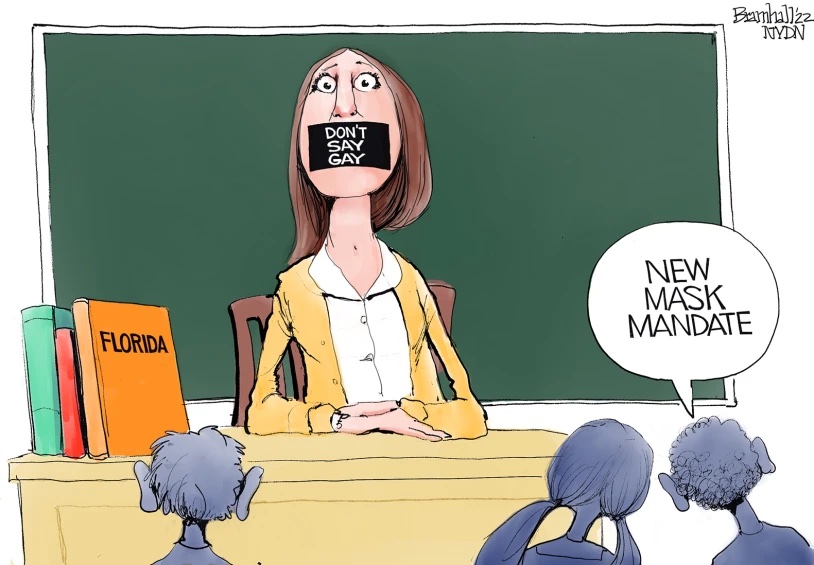
Proponents of the legislation say 5 to 8-year-olds are simply too young to be taught about gender fluidity and sexual orientation — and want those discussions to occur in homes at a time and age when parents think it’s best. However, LGBTQ+ activists say it’s imperative to teach kids who may be confused about their gender identity or attraction to their same gender that they are not abnormal and that they are represented.
“We know it’s not about parental rights,” said Jeff Graham, the executive director of the LGBTQ advocacy group Georgia Equality. “It really is about restricting the activities, participation, and learning of children in school.”
In short, the bill wants schools to simply not discuss or even use the word “gay” in the classroom, but activists want the terminology discussed openly, honestly, and early.
Now, the Florida “Don’t Say Gay” bill appears to be spreading to other states.
In Georgia, lawmakers are attempting to pass the Common Humanity in Private Education Act, which would prevent private school classrooms from being able to “promote, compel, or encourage classroom discussion of sexual orientation or gender identity in primary grade levels or in a manner that is not appropriate for the age and developmental stage of the student.”
In Iowa, Gov. Kim Reynolds signed a bill that bans trans girls and women from participating in high school and college athletics, despite arguments that the bill was discriminatory and targeted a non-existent problem.
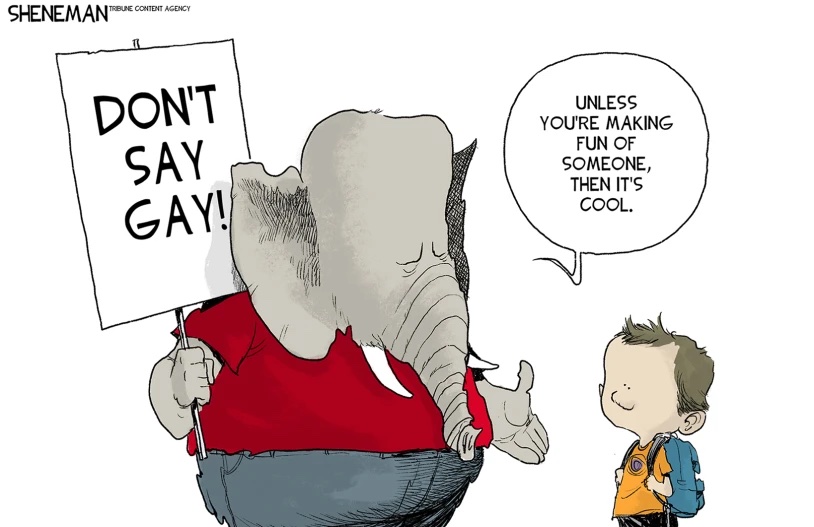
In Tennessee, Republicans are out to ban public schools from using any textbooks that “promote, normalize, support or address LGBT issues or lifestyles” in K-12 classrooms.
In Kansas, Republicans have introduced a bill that would effectively change the state’s current obscenity laws and make it a Class B misdemeanor to teach classroom materials on “homosexuality.”
In Texas, Republican Gov. Greg Abbott has instructed the state’s child protection services that if they see any parent providing their children with gender-affirming care, they should immediately investigate and accuse them of “abuse.” Additionally, Tennessee, Iowa, and Oklahoma are each considering anti-LGBTQ legislation, according to the American Civil Liberties Union.
So, what’s really going on here?
Are parents being anti-gay when they press to make it illegal for teachers to discuss gender fluidity or sexual attraction with kids under 8 or 9 years of age — or are they simply exercising their parental rights regarding what their kids should learn and when?
Are LGBTQ+ activists correct that it’s important to provide representation for kids who might be struggling with their gender identity or attraction to their same-gender friends — or is it possible these activists are overstepping their boundaries and disrespecting the role of the parent?
Are some states simply jumping on the Florida bandwagon to promote their own anti-gay rhetoric and ideas — or is it possible their legislative moves deserve a closer and fairer look?
Who’s in the right here??
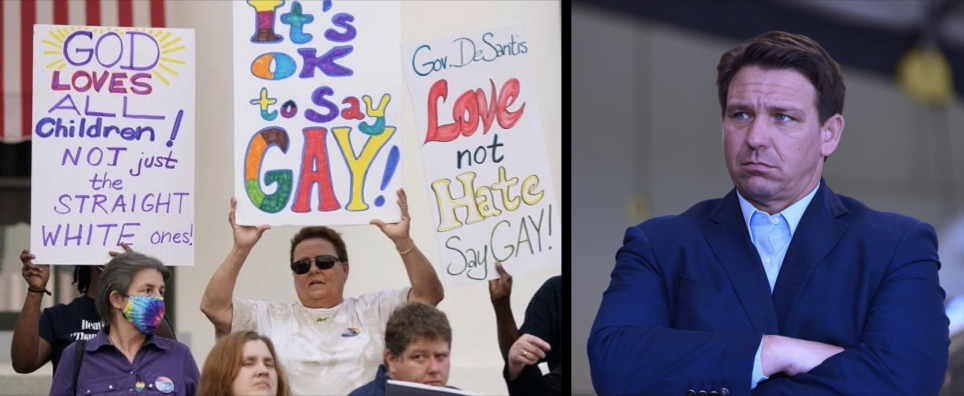
OK WASSUP! discusses Gay Rights:
Is the Florida ‘Don’t Say Gay’ bill discriminatory?

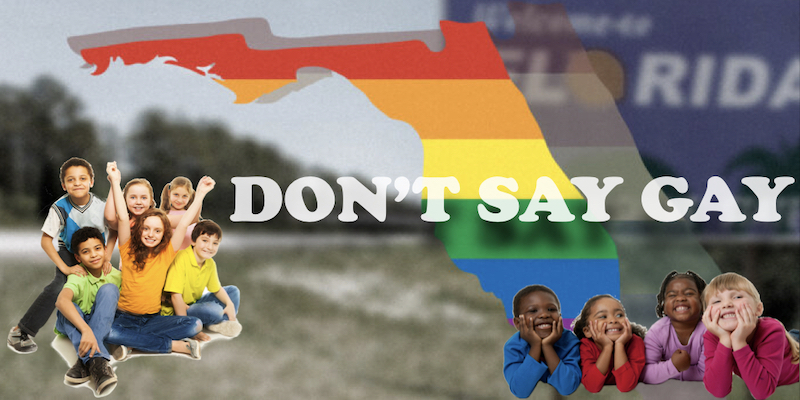

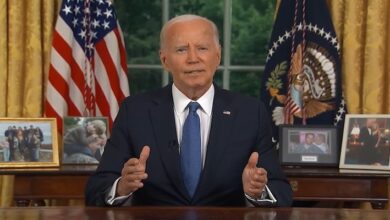
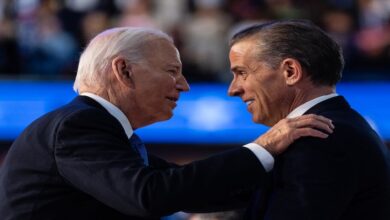

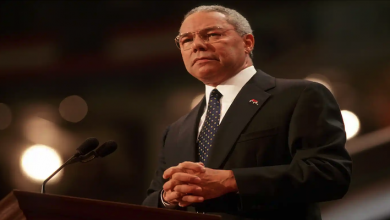
Washington Post:
Disney announced on Friday that it would pause all political donations in Florida in the wake of a controversial state bill that restricts discussion of LGBTQ issues in public schools. Over the last few weeks, the company had received criticism for remaining silent about what critics call the “don’t say gay” bill, which is expected to be signed into law by Florida Gov. Ron DeSantis (R).
In a statement sent to employees on Friday, Disney CEO Bob Chapek also announced that the company would increase support for advocacy groups fighting similar laws elsewhere (such as one recently introduced in Georgia) and would reassess Disney’s political donation policies. Chapek apologized to the company’s workers for not making a statement sooner, writing, “You needed me to be a stronger ally in the fight for equal rights and I let you down.” In response, DeSantis criticized what he called the company’s “woke” ideology.
“So, what’s really going on here?” – DJ
In my opinion, Extremists on both the “Right” and “Left” are playing politics with the lives of children, especially children (adolescents, in particular) who may be struggling with their gender identity and/or sexual orientation.
It’s all a dangerous game!
“Who’s in the right here??” – DJ
Neither side. And the madness needs to stop!
I am absolutely fed-up with (predominantly) White male Extremists of every ilk mucking with the lives of “Others.” Be those extremists heterosexuals OR homosexuals OR bisexuals OR Trans…it really does NOT matter.
I’m even more disgusted by People of Color, especially Black men and women, who support the madness of those dangerous-azz clowns!
Extremists have done great damage to this country and will continue to do so until WE (the rest of us) WAKE UP!
DJ you left us some hard questions today because I can sort of see both sides. Parents should be the ones deciding if their children hear about sexual attraction and all that at a certain age. But these anti gays have latched on to that also just to put their agenda in motion. And it is the Repub states that are pushing against it the most. This issue is a messy one. I cannot wait to see how it ends up because I am stumped.
Parents should be the ones deciding if their children hear about sexual attraction and all that at a certain age. But these anti gays have latched on to that also just to put their agenda in motion. […]
I am in total agreement with you on both points BD.
Which leads me right back to where I started. Extremists on both the Left and Right are playing Very harmful and dangerous (socio-cultural) political games with the lives of children.